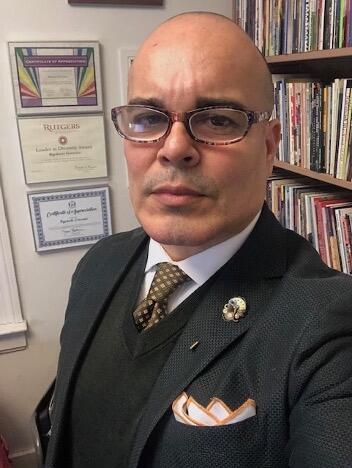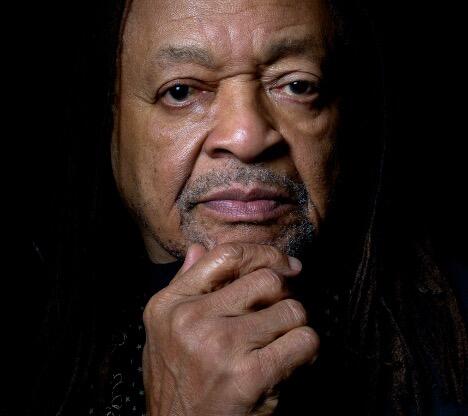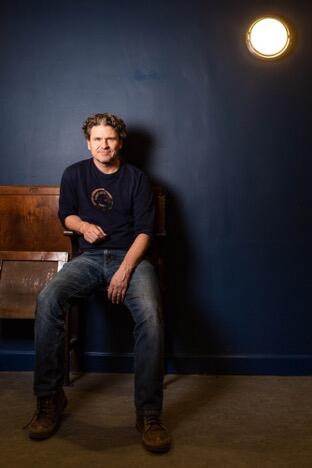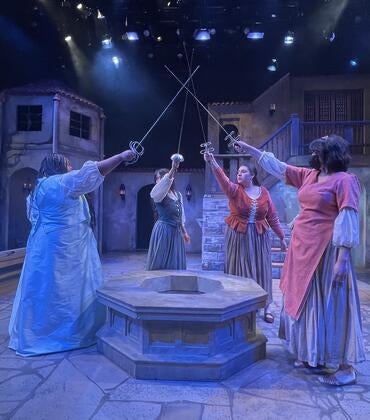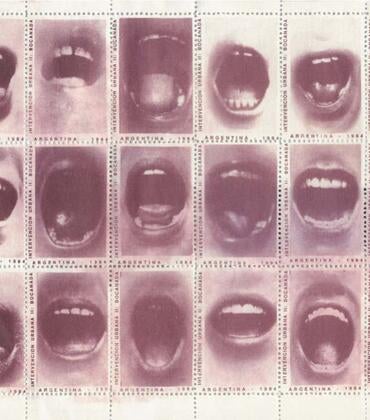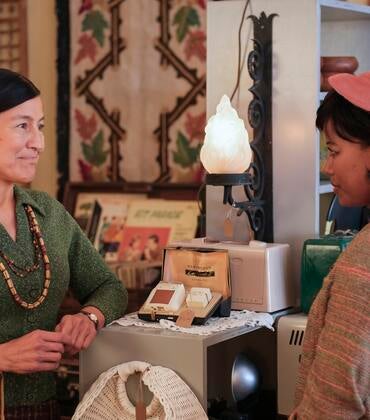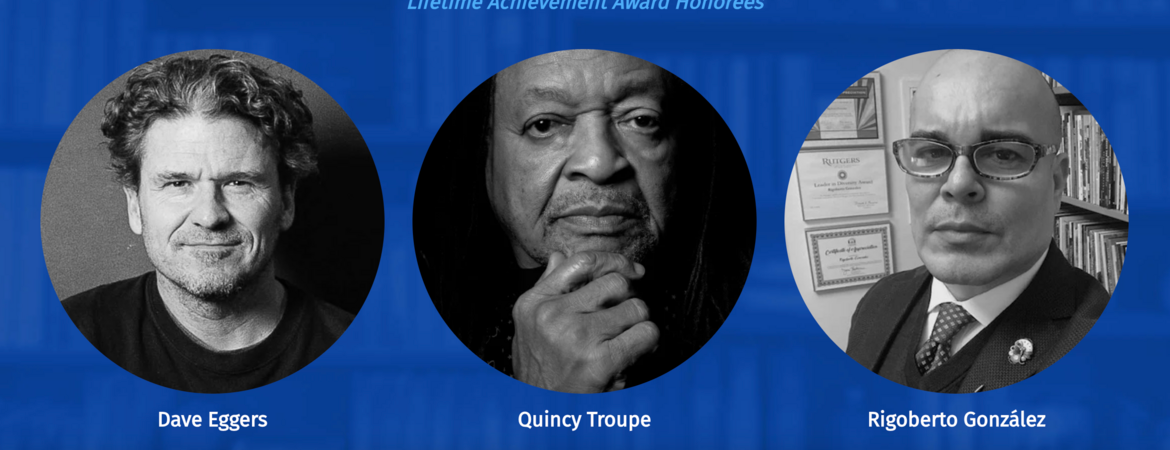
The 47th Writers Week Festival at the University of California, Riverside will recognize the careers of three literary authorities: Dave Eggers, Rigoberto González, and Quincy Troupe. They will receive the Los Angeles Review of Books/UCR Department of Creative Writing Lifetime Achievement Awards.
The festival, free and open to the public, is set for Feb. 10 and Feb. 12-16. The lineup includes 52 authors and poets who will offer readings, panel discussions, and question-and-answer sessions. All presentations will be offered virtually and in-person events, with all sessions captioned and ASL translated. See full schedule: writersweek.ucr.edu. Parking for all on-campus Writers Week events is free. Visitors must sign up online for free parking.
The public will have two opportunities to see the three honorees. On Thursday, Feb. 15 at 7 p.m., UCR will host an in-person ceremony on campus, at CHASS Interdisciplinary South (INTS) 1128; no registration is required. For those who want to join from afar, this on-campus event will be available virtually by registering via CrowdCast. Parking is free in Lot 1 Blue for this in-person event. ADA parking map: transportation.ucr.edu. Campus map: campusmap.ucr.edu
A second opportunity to celebrate the honorees will be on Friday, Feb. 16. L.A. Review of Books will host a ticketed celebration at the Perch Restaurant in downtown Los Angeles.
As the longest-running free and accessible literary festival in California with diverse voices and writings, Writers Week is unique, said Allison Adelle Hedge Coke, Writers Week codirector and distinguished professor of creative writing at UCR. Locals can attend a Writers Week exhibit on campus at the Tomás Rivera Library. The exhibit runs Feb. 7-15.
Thomas Lutz, Writers Week codirector, distinguished professor of creative writing at UCR and founding editor-in-chief of the Los Angeles Review of Books, said writers are essential to society because they are “our culture’s ‘R&D department.’”
Get to know Rigoberto González and Quincy Troupe in the following Q&A, which has been edited for space and clarity. Dave Eggers was unavailable for an interview due to work conflicts.
Rigoberto González
The author of 18 books, González is a UCR alum and the only alum awarded the Los Angeles Review of Books/UCR Department of Creative Writing Lifetime Achievement Award.
González ’92, majored in English/creative writing. He is a first-generation college student who in fall 2024 will publish his 19th book, a Latinx poetry anthology for Library of America, the nonprofit that champions cultural heritage by publishing America’s greatest writings.
At UCR, González was one of the original founders of UCR Ballet Folklórico, and one of the first men to join this Mexican cultural dance group. Dancing washed away some of his shyness and opened his creative channels to write poetry, he said. In 2003 UCR recognized González with the Outstanding Young Alumni Award. González is a distinguished professor of English and director of the MFA program in creative writing at Rutgers University-Newark in New Jersey. His awards include Guggenheim, NEA, NYFA, and USA Rolón fellowships, the PEN/Voelcker Award, the American Book Award from the Before Columbus Foundation, the Lenore Marshall Prize from the Academy of American Poets, and the Shelley Memorial Prize from the Poetry Society of America. González is also a critic-at-large for the LA Times and contributing editor for Poets & Writers Magazine. In 2020 González became Camino del Sol series editor, a literary house under University of Arizona Press.
Q: You have been referred to as “a poet of two nations.” Do you identify that way?
A: Absolutely. I was born in the United States, raised in Mexico, and came back to U.S. at the age of 10. We were taught to maintain our language, culture… many friends here did not speak Spanish, which was something my parents did not want for us. We kept going back to Mexico and in 1992 all my family returned to Mexico. I could not go, I was in graduate school. This left me feeling more determined to stay connected to Mexico, to the language, to my culture. I’m still writing about Mexico, immigrants, the borderlands. When I read Rudolfo Anaya and Tomás Rivera, they wrote about our communities, and I understood then that our stories also mattered. It opened my world.
Q: Your writing includes prose, poetry, children’s books. Does writing for these audiences/genres require a different set of skills? How would you explain this to young or up-and-coming writers?
A: UCR did everything for me, it laid the foundation for my writing career. I then went to graduate school at UC Davis for poetry and Arizona State for fiction writing. Only in the U.S. graduate school system are you forced to choose what to specialize in. Writers in Latin America, for example, always write in multi-genres. Twenty years ago, I was more deliberate on what I was going to write. Nowadays I don’t think about it. I just write. It’s about keeping an open mind and not pigeonholing yourself; I don’t understand why you would want to limit your imagination. I would say to young writers, try everything, read everything. Any kind of limitation is a self-imposed block. A writer is supposed to tear down walls, mental blocks. I have never experienced writers block because I don’t limit myself.
Q: What accomplishment(s) are you most proud of?
A: For me, my greatest accomplishment is that I’m still doing it, still writing. I never gave up the dream; I said I was going to be a writer and here I am … I’ve been believing in myself this entire time. I am not in this industry to prove anything, I am just here to be who I am. Nowadays many people are too focused on awards, on whether a book gets published. I always tell my students not to rely too much on awards and remind them that if you don’t believe in yourself, it won’t happen. You can have the entire world supporting your work, but what matters is that you believe in yourself. After all these years, I still love writing. I come with that immigrant work ethic; I keep working no matter what because then all the sacrifice will not mean as much.
Q: In a recent literary panel, (BOOKISH by SCNG) you shared a story of when you “discovered” that not all authors were dead. You had this realization while attending a UCR Writers Week reading. How did this “discovery” impact your own trajectory as a writer?
A: This was during my first year as an undergrad student at UCR, in 1988. Up to that point, I always looked at books, at authors, as something very far away, inaccessible to me. Until then, I was fantasizing about being a writer. Then, to meet an author, there, reading in front of me, the distance between being a reader and writer became very small. UCR Writers Week has always been diverse… the young woman I saw then was an African American author … it made me realize that it could be anyone of us in that room.
Q: Why are writers (like yourself and others) important? Why are bilingual writers important? And on that note, how and when did you realize that writing about your Mexican, immigrant culture was important? What authors inspired you?
A: There’s two ways I understood this: to me, it’s for preserving who I am. It’s important to continue to be that person on the pages that people read. On a larger level, people speak on our behalf. Sometimes those stories are not true or are too one sided … we have to tell our own stories. Latino writing pushes past stereotypes; our stories will be written, are being written, and they will exist many moons after publication. Take for example the book by Tomás Rivera, “Y no se lo tragó la tierra” — decades later that book made a big difference in my life. To say our stories matter is an understatement. You never know who is going to encounter your work, whose life you are going to change.
Q: Your book, “Butterfly Boy: Memories of a Chicano Mariposa” is a coming out and coming-of-age story that for the first time publicly discloses your sexuality. How did you know it was time to write this very personal narrative?
A: It’s interesting because I’m moving in a world as a Chicano writer and also as a gay writer. I often asked myself, how do I negotiate that? When I began reading some complicated portrayals of sexuality in writings by authors such as Arturo Islas, Michael Nava, Gil Cuadros, Francisco X. Alarcón, I knew it was important to write about this, but there were few gay writers and I questioned whether it would close doors for me. I told myself, ‘I’m going to take the risk, I just have to do it.’ I had lots of support from African American writers and other friends. All I needed was to come out to my brother. I finally told him in August 2006 — the book was going to publish in October. My brother took it well, he said he already knew. Then, I was ready! When this book came out, for two years I received emails saying things such as ‘Thank you for sharing your story. This too is my brother, my cousin, my friend.’ Emails came from all over the world, and I knew I had a community. It made me feel less alone.
Q: UC Riverside’s Writers Week has been going strong for 47 years. Is there anything you want to say about being this year’s recipient of the Los Angeles Review of Books/UCR Department of Creative Writing Lifetime Achievement Award?
A: On one level, I am very honored that the place that gave me my first steps to becoming a writer now recognizes me. It feels great. It’s like going home to proud parents who say, ‘You did good, you did wonderful!’ On a second level, I saw the people who have received the award before me and I was stunned. I’m always a little surprised that people hold me in such high esteem. Growing up I was always so shy, never wanting to be in the spotlight. When I thought of being a writer, I figured it would not put me in front of people. Well, I soon realized being in front of people was part of the deal! I learned from my mentors that what you do reflects on your community. I asked myself, ‘What am I doing for the community?’ Whenever I get a recognition like this, it gives light to my community. I’m still that shy kid that does not want to be in front of that audience, but now I know there is a purpose.
Quincy Troupe
Troupe’s influence transcends book pages. He co-authored the biography of businessman Chris Gardner, titled “The Pursuit of Happyness,” which became an award-winning book and film starring Will Smith. He has authored 21 books, including biographies, children’s books, and edited a James Baldwin anthology. Troupe acknowledged that his writing career pivoted for the better after publishing his first book of poems, “Embryo” (1972) and the co-authored biography on jazz musician Miles Davis, “Miles: The Autobiography” (1989).
Troupe is the son of former baseball player Quincy Thomas Trouppe, a catcher and switch-hitter who earned the nickname “Big Train.” Trouppe played on Negro Leagues teams in the United States and traveled extensively across Latin America, which according to a biography, was one of the reasons the senior Trouppe modified the spelling of his last name to a double ‘p,’ reflecting the pronunciation by his Mexican fans, “Troo-pay.” At age 39 he was signed with the Cleveland Indians. Young Quincy Troupe often traveled with his dad, an experience that influenced his worldview, he said. Troupe himself played basketball in college and in the U.S. Army with an all-Army basketball team. When he left his native St. Louis, Missouri, for California, he settled in the Los Angeles area and became part of the Watts Writers Workshop, a creative writing class created by Budd Schulberg, a novelist and Hollywood screenwriter, in the aftermath of the 1965 Watts Uprising. Troupe is professor emeritus at the University of California, San Diego and former editor of Code magazine and Black Renaissance Noire, a literary journal of the Institute of Africana Studies at New York University.
Q: In addition to being an author, you are also a professor. You have taught in Ghana, Nigeria, New York, Los Angeles, and La Jolla. Have these places influenced your writing?
A: People or an individual person does not necessarily influence my writing unless I have a personal connection with that one person. Places always influence me, though. I’m always looking at the landscape to get a sense of life there, of the community. For example, when I went to La Jolla, I just couldn’t believe how gorgeous it was. Being surrounded by nature was incredible. And one day I woke up and wanted to go back to New York. This is home … it was not just about the landscape; it was about the environment here.
But I’ll tell you this, my wife, Margaret, is a big influence on me. We’ve been married for 47 years. She’s a strong, great lady. I’m very lucky to have married her. The other person was my best friend, Toni Morrison. One time when I was struggling to write, she said, ‘Quincy, just go sit in front of the computer until it starts to come. You gotta go in that study, have discipline.’ I realized too that as an ex-athlete, I used to shoot 100 jump shots a day. That was not luck, it was practice and discipline. So I applied that rationale to my writing.
Q: Your father had a successful baseball career in the 1930s and 1940s playing for the Negro Leagues — that was before baseball became an integrated sport. What was it like to watch him navigate this athletic world?
A: As a baseball player, my dad was very much a lady’s man. There were all these beautiful women around him and my mom wouldn’t have any of that, she threw him out. I still remember that to this day. She didn’t look back even though they had been together since high school.
In terms of his career, nobody in my St Louis, Missouri neighborhood had that kind of lifestyle. I would come back from being with my dad and people would ask, ‘Where you’ve been, Quincy?’ And I’d just come back from Puerto Rico, Cuba, Mexico. It was unheard of. My father was in the old Negro Leagues and all these players came to the house, they wore beautiful clothes and were so distinguished. Those people were examples for me. Some of the other men in the neighborhood had good careers too, they were doctors but they just went to work and came home. I didn’t want to be like them. These baseball players were worldly, they were different from everybody else in my neighborhood. That was a very important influence in my life as a kid. I wanted to be like those guys, I wanted to emulate them, how they dressed and traveled.
Q: What accomplishment(s) are you most proud of?
A: I’m proud of a lot of things. When I published my first poetry book, “Embryo” in 1972, I just kept looking at it — it was my book, mine! Until then, I was just writing poems, I was not thinking about a book. Then I started publishing in magazines and the opportunities just came.
Q: You have 21 published books. What was it like to see actor Will Smith play Chris Gardner, the real person behind the biography you co-authored, “The Pursuit of Happyness?”
A: I got to meet Will. He told me, ‘I read that book and I said, oh man!’ It was great. Then I worked with Miles Davis, Miles opened a lot of doors for me, he was an icon, and everybody loved him. Chris Gardner came to me because of Miles’ book. I got to meet so many people because of Miles. Then, I wrote the book “Miles and Me” about our relationship, what it was like. A major motion picture company is going to make that into a movie, I already wrote the script.
Q: Why are writers (like yourself and others) important?
A: I think that writers capture real life. One of the big things that impacted my life, was when I read Pablo Neruda. I said, ‘Wow, this guy is something else.’ The beauty of his language, it was like a painting with words on a page. That was a big influence, then I read Federico García Lorca … I always read comics, all kinds of books. I just liked to get lost in these books, I just never thought I would be a writer. When I learned that T.S. Eliot was from St Louis too, I knew I could be a writer too.
Q: UC Riverside’s Writers Week has been going strong for 47 years. Is there anything you want to say about being this year’s recipient of the Los Angeles Review of Books/UCR Department of Creative Writing Lifetime Achievement Award?
A: I have received many notable awards, but I am very happy to receive this one because it’s a recognition for a lifetime of writing. And it comes from my great friend, Allison Adelle Hedge Coke. You know, Allison don’t give you something if you don’t deserve it. For me, it’s a wonderful award to get, notable for me in a lot of ways. I feel privileged and proud and honored to have received this award.
Dave Eggers
Last month Eggers’ middle grade book, “The Eyes and the Impossible” won the John Newbery Medal, named after an 18th century British bookseller and awarded annually by the American Library Association for the most distinguished American children’s book published the previous year. Eggers is the author of 15 children’s books and 13 fiction novels, including “The Circle” and “A Hologram for the King,” which became films. “The Circle” starred Emma Watson with Tom Hanks playing a supporting role. In “A Hologram for the King” Tom Hanks took the leading role.
Throughout his career, Eggers has worked to support writers, young and old. He cofounded 826 National, a network of youth writing and tutoring centers that now includes nine chapters across the United States. He also founded ScholarMatch, a nonprofit that supports low-income students, and cofounded Voice of Witness, an oral history nonprofit focusing on amplifying voices of people impacted by injustice. Then in 2018, Eggers cofounded The International Congress of Youth Voices, an annual gathering of 100 young writers and activists.
He is the founder of McSweeney’s, an independent publishing company. Eggers is also a journalist, his stories have appeared in several newspapers, including The New Yorker, The New York Times, The Guardian. Eggers is winner of the American Book Award, the Los Angeles Times Book Award, Muhammad Ali Humanitarian Award for Education, the Dayton Literary Peace Prize, the TED Prize, and has been a finalist for the National Book Award, the Pulitzer Prize, and the National Book Critics Circle Award. Eggers graduated from the University of Illinois with a degree in journalism.
